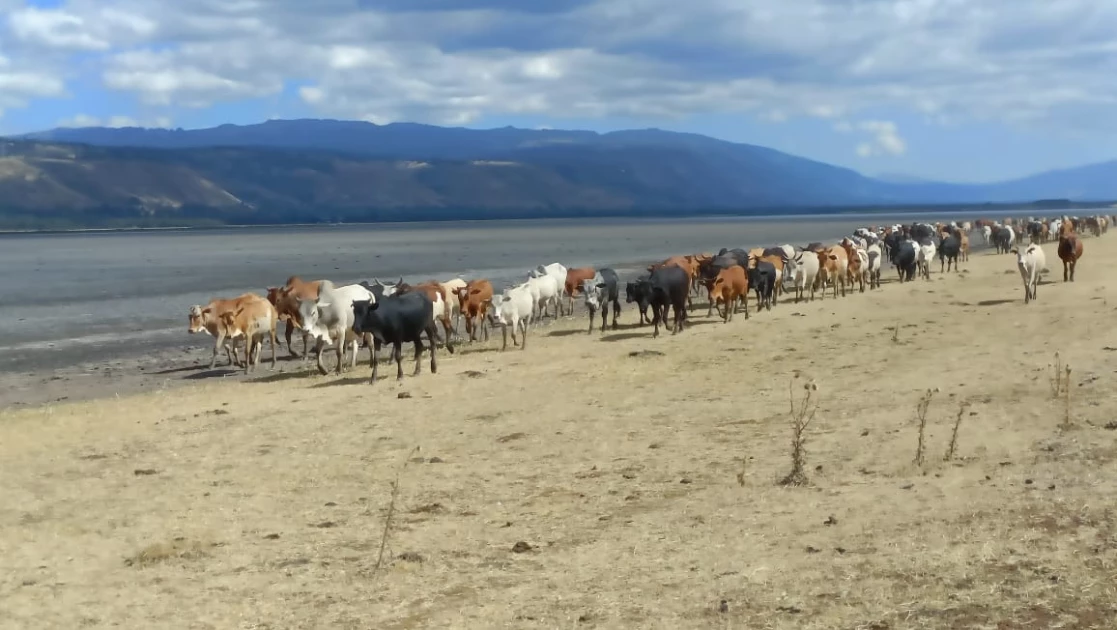Lake Ol-Bolosat drying up as a result of prolonged dry spell

A herd of cattle walks along dried-up lake Ol-Bolosat.
Ol-Bolosat, a lake in the Central Highlands located in Nyandarua County is drying up as a result of prolonged dry spell.
The current state of the lake has left environmentalists and
conservationists worried, despite the efforts they have made to resuscitate it.
The lake that lies at the foot of Aberdare ranges is a great
source of water to thousands of families, a habitat to hippos and home to more
than 300 species of birds, but their lives are now at stake.
Mr. Wachira Njari, a teacher and environmentalist claims the
adverse effect of the drying up of the lake was serious to fathom.
He notes that only a section of the water reservoir was
remaining and should the rains fail, no further efforts would help salvage the
situation.
Mr. Wachira observes that the lake's habitat was now flocking to
the only section of water available, adding that more effects would be felt
soon.
Another environmentalist, Thomas Nderitu says there have been efforts
to reclaim the lost forest cover at the Abardare Water tower but are yet to
bear fruits.
The duo observes that human activities, soil erosion and grabbing of the riparian land of the lake is to blame for its near extinction.
River Ewaso Nyiro, which draws its water from the lake and
meanders through Nyandarua, Laikipia, Samburu, Isiolo and Marsabit counties
down to Lorian Swamp is also affected.
When Citizen TV visited the lake, herds of livestock were
quenching their thirst on the water body, and residents claim this might also
lead to conflict between herders and farmers.
In March last year, the government launched Lake Ol-Bollosat management
Plan with an aim to conserve and protect it.
The then Environment Cabinet Secretary Keriako Tobiko said the
conservation and protection of the lake requires joint effort by key stakeholders
and the local communities.
The Plan identifies priority interventions under seven management programmes including Biodiversity management, Eco-tourism management, Water resources management, Human-wildlife conflict management, Education and community awareness, Agriculture, Livestock and Fisheries management as well as Forestry resources management.
Successful implementation of this
Plan will facilitate rehabilitation of degraded areas; enhance ecological
integrity, conservation and sustainable utilization of the Lake for the current
and future generations.
Want to send us a story? SMS to 25170 or WhatsApp 0743570000 or Submit on Citizen Digital or email wananchi@royalmedia.co.ke
Comments
No comments yet.


Leave a Comment